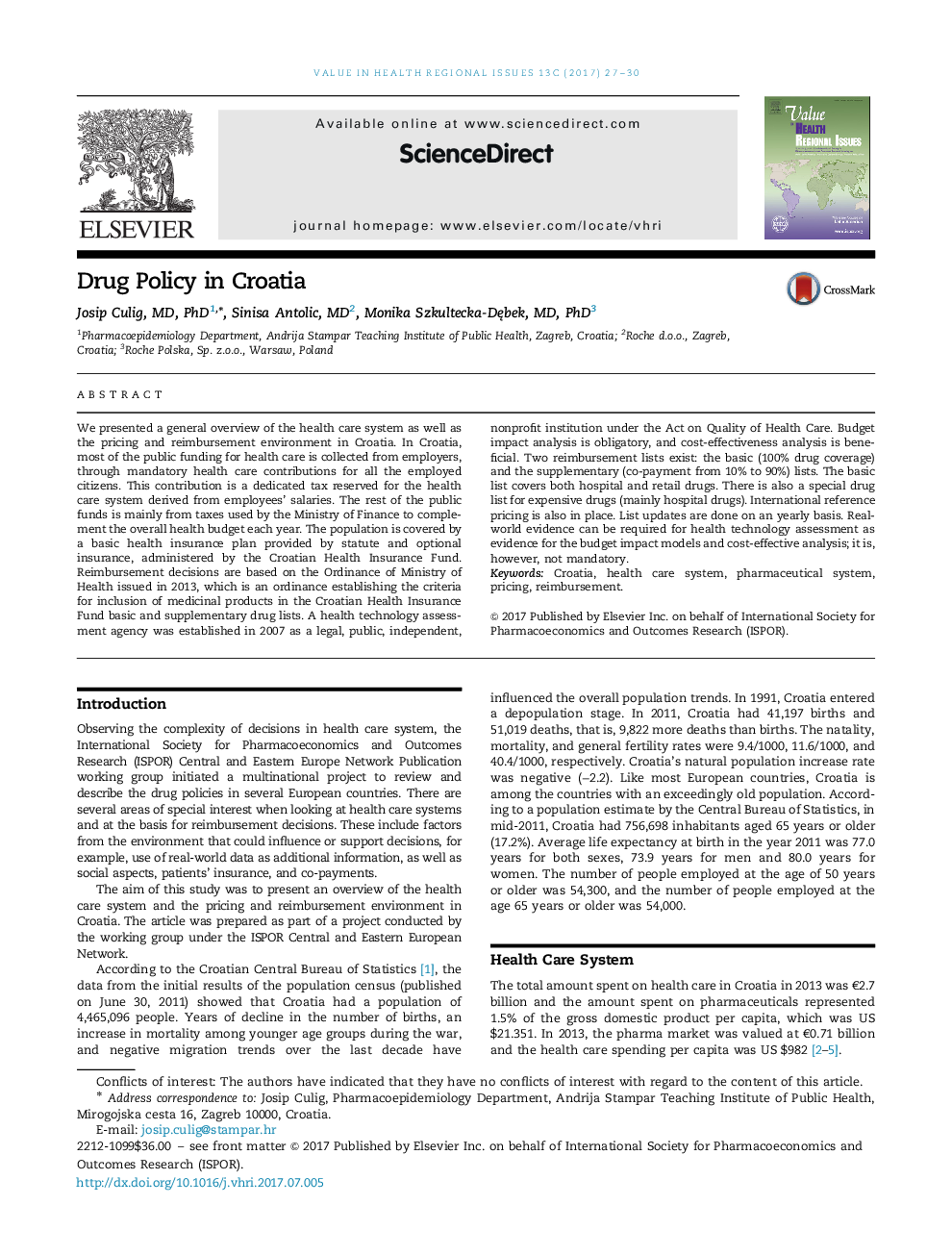ترجمه فارسی عنوان مقاله
سیاست مواد مخدر در کرواسی
عنوان انگلیسی
Drug Policy in Croatia
| کد مقاله | سال انتشار | تعداد صفحات مقاله انگلیسی |
|---|---|---|
| 99205 | 2017 | 4 صفحه PDF |
منبع

Publisher : Elsevier - Science Direct (الزویر - ساینس دایرکت)
Journal : Value in Health Regional Issues, Volume 13, September 2017, Pages 27-30
ترجمه کلمات کلیدی
کرواسی، سیستم مراقبت بهداشتی سیستم دارویی، قیمت گذاری، بازپرداخت
کلمات کلیدی انگلیسی
Croatia; health care system; pharmaceutical system; pricing; reimbursement;

